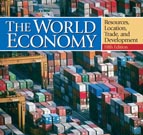EU economic ministers risk nasty talks in Nice
 Brussels - The European Union's finance ministers are to hold informal talks in the sunny French Riviera on Friday and Saturday.
Brussels - The European Union's finance ministers are to hold informal talks in the sunny French Riviera on Friday and Saturday.
But given the dark clouds hovering over their economies, they are set for a stormy gathering in Nice.
In one corner of the meeting room will sit the "goodies": those ministers who have either managed to contain the impact of the latest global economic slowdown, or whose governments were thrifty enough during the good times to be able to spend their way out of the present crisis.
In the opposite corner will sit the "baddies": Britain's Alistair Darling, Italy's Giulio Tremonti and France's Christine Lagarde, whose sagging economies are dragging the rest into communal decline while ballooning budget deficits prevent them from doing much about it.
The Nice gathering will come on the back of the latest economic forecasts of the European Commission, which on Wednesday predicted a lower-than-expected 2008 growth rate for the 27-member bloc of just 1.4 per cent.
The commission's growth forecast for the 15-strong euro area, which excludes most of the expanding economies of Eastern Europe, is an even more dire 1.3 per cent.
And there's little sign of a recovery before the second half of 2009.
In the meantime, spiralling commodity prices are pushing annual EU inflation to 3.8 per cent - nearly double the European Central Bank's (ECB) target rate of around 2 per cent.
"The big picture is pretty poor: weak consumption, weak demand, strong headwinds for exports. Europe might not be slipping into a technical recession, but growth will remain very, very weak," says Simon Tilford, chief economist at the London-based Centre for European Reform.
Joaquin Almunia, the EU's economic and monetary affairs commissioner, says Europe's woes are the result of a series of external shocks: spiralling oil prices, a prolonged state of turmoil on the international financial markets, and a pronounced slowdown in the US economy.
But he is painfully aware that European governments also share much of the blame.
In Nice, Almunia will press ministers on the need to approve a series of urgently-needed reforms designed to improve Europe's economies by making labour markets more flexible, increasing competition in the retail sector and removing barriers to entry in the energy markets.
"Structural reforms are easier to be adopted in good times, but they are even more needed in these times," Almunia said on Wednesday.
The commissioner will also point his finger at those ministers who preside over large budget deficits and did little to improve the state of their public finances when their economies were prospering.
"We know which ones are the economies that did not consolidate their finances during the good times. Now they must pay attention not to break the (EU's) stability pact rules," Almunia said Wednesday.
He was referring in particular to the likes of France, Italy and Britain, whose budget deficit-to-GDP ratios have remained dangerously close to, or above, the 3-per-cent-limit straightjacket imposed by Brussels, and which consequently find themselves with little money to supercharge their economies.
Euro-heavyweight Germany, by contrast, managed to eliminate its budget deficit altogether in 2007, and is now in a much better position to confront the slowdown, officials in Brussels note.
But rather than pronounce mea culpas and mend their ways, government officials in France and Italy have instead been calling for ways to protect their economies from outside competition.
France, which currently holds the rotating presidency of the EU, has also been particularly vocal in suggesting that the ECB should cut interest rates to promote growth, rather than stick to its institutional mandate of keeping inflation in check.
Such arguments are unlikely to go down well in Nice.
"The problem with France and Italy is that they have done so little to improve their situation in the past that their bargaining power is very weak. There is very little sympathy for their predicament," Tilford says.
During a speech in Frankfurt on Tuesday, Almunia went out of his way to defend the ECB and also denounced the risks of "calls for protectionist and other trade-distorting measures."
Tilford predicts that given the difficulties involved in reconciling the different positions, the Nice gathering will probably end in a "stalemate."
Insiders say the only likely result will be an agreement to extend the mandate of Luxembourg Prime Minister Jean-Claude Juncker as chairman of the influential group of countries which share the euro. (dpa)